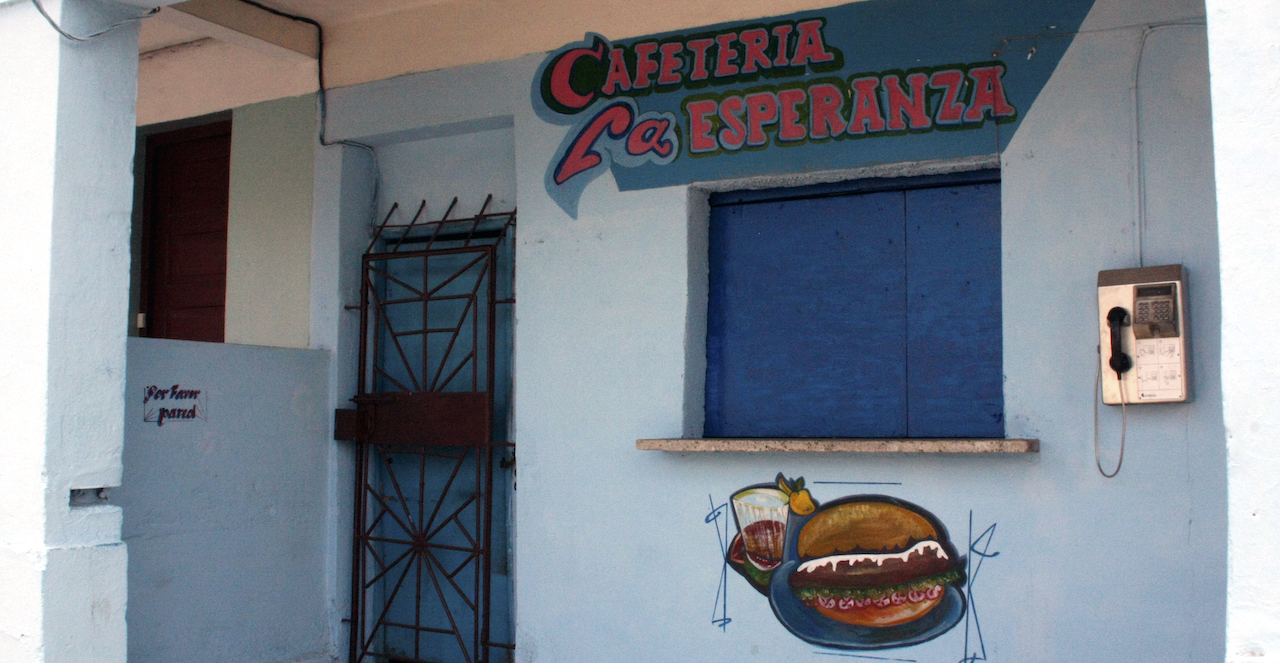The scarcity of sugar in Cuba could force the temporary closure of small, private cafés, where almost all of their offerings are juices, soft drinks, coffee and homemade sweets. Such closures would entail an increase in unemployment and a drop in income for those families that are sustained, directly or indirectly, by private activity.
"It's impossible to continue in a business where the numbers don′t add up. The price of sugar has hit 100 pesos a pound, and you can't find it easily, either," says Marbelis Gallardo, who for more than five years has been making sweets for three small cafés in her Lawton neighborhood.
"The prices of flour and cornstarch have also skyrocketed, but not as much as sugar, which, in just three months, rose from 50 to 100 pesos. To compensate for the investment costs, I would have to almost double the prices of my sweets. We are talking about neighborhood cafés where the customers are everyday Cubans: old timers having a coffee; juices, soft drinks or sweets for children's snacks…" adds Gallardo, who plans to sell her sweets herself ― which would be illegal, since she does not have a license to do so, "and the inspectors are swarming like flies, always looking for someone to bite."
Juice producers, although they do not have to invest in large quantities of sugar like candy makers, are also affected by the exorbitant increase in sugar prices on the informal market. As a result, their supplies for small coffee shops have been considerably diminished, and thus, these establishments′ offerings.
"Rationing has even reached the black market," said Tomás Bravo, the owner of a small café near the William Soler Pediatric Hospital.
"A friend told me that a grocery store owner in La Lisa was selling sugar for 80 pesos a pound. I quickly rented a car for 600 pesos a run, because I went with the idea of buying at least 100 pounds. As it turned out, the proprietor was showing some solidarity and was only selling 20 pounds to each customer, who came recommended, because other people also needed to buy sugar, he said, and he did not sell exclusively to the self-employed. After I calmed down, I understood, and actually applauded this bodeguero," said Bravo.
"The truth is that we′re at a crossroads: either we close the business, or we raise prices even more, which would affect, in my case, those family members who have their children in the hospital. They comprise the majority of my customers, and it would be a crime to raise their prices. But then there is my family, and the business is our only source of income," he adds.
The production of the 2021-2022 sugar harvest was the lowest in the last 150 years: only 480,000 tons of sugar, not even covering the average annual consumption on the island, which is around 600,000 tons. Of the 35 sugar mills that participated in the harvest, which ended on May 20, only three fulfilled their production plan.
"We don't even have sugar at the bodegas," says Alexis, the manager of one in El Cerro.
"Incredible as it may seem, the sugar I have at my house, which I don′t sell, is thanks to two users who travel abroad frequently and leave me their rationing books. I have no sugar to sell under the table, and the reason is simple: there is none. In reality, the quota arrives, and nothing more; and no bodeguero is foolish enough to sell sugar when not all of what should have arrived has in the last few months," Alexis emphasizes, noting that this situation will continue despite the package of measures announced by the regime to boost the country's economy.
In his speech at the ninth ordinary session of the unicameral Parliament, the Minister of Economy and Planning, Alejandro Gil, announced a package of more than 70 measures to revitalize the Cuban economy, but he did not mention, for example, the 2.1 billion peso debt the regime has with the island's producers.
"What makes them think that we will have any confidence in this combination of measures when they can't even guarantee sugar to sweeten the lemonade?" remarked Zoe Alvarez, owner of a small café in Centro Habana, who is looking for other alternatives "to stay afloat."
"Raising prices is not viable, at least for those of us who support this type of business, which is more for people with limited resources. Changing the offerings won′t benefit them either, but somehow I have to support a family and a business," explains Álvarez, who decided to start selling lunches because "it′s easier to get rice, beans and some fiber."
"What is impossible is to sell or produce products that depend on sugar or flour because of the current prices. And it′s not only the prices, but also the effort involved to get sugar. With great sadness, I had to let go the two saleswomen I had hired. I had no choice, even though they were two mothers who now have to reinvent themselves to look for another job, because they don′t want to continue reselling products, due to all the risks involved."
"Who could ever have imagined that sugar, with which everything is sweetened, could lead to unemployment and the bankruptcy of small businesses like mine?" Álvarez asked.
